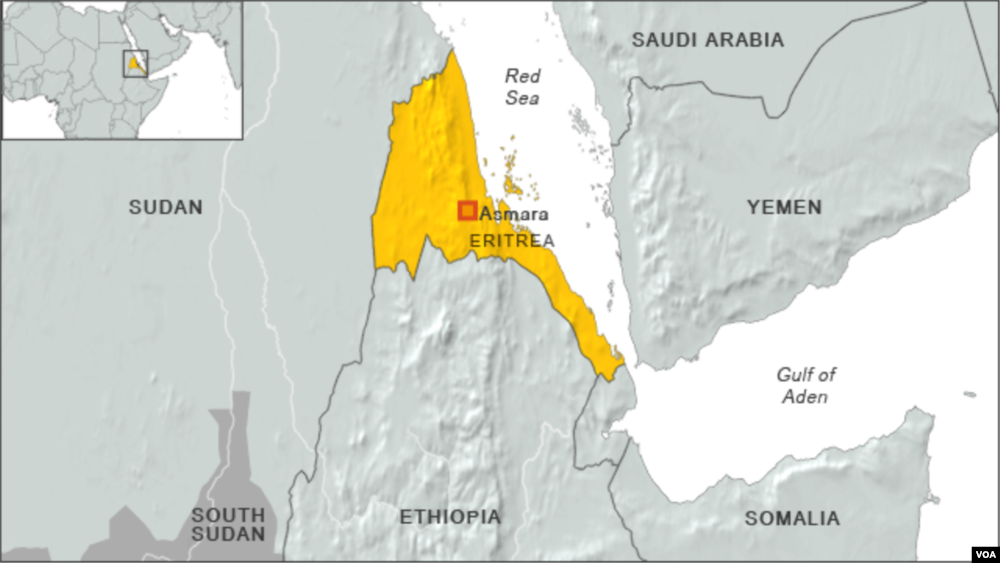Some Experts Wary of Eritrean Currency Redemption Plan
2015-12-01 16:29:07 Written by Salem Solomon Published in English Articles Read 2051 times
Eritrea map
The Bank of Eritrea recently announced that all Nakfa notes in circulation must be exchanged for new government-issued notes.
The decision by the country’s central financial institution is expected to have a major impact on the economy.
While the nationwide currency replacement program is not meant to change the value of the money, as the exchange will be on a one-to-one basis, observers nonetheless expected the effects to be wide-ranging.
Biniam Fessehazion Gebremichael, a former Eritrean judge and legal counsel for Eritrean Airlines who now lives in Oakland, California, says the official reasons given for the exchange included introducing new banking instruments such as checking for transactions above 20,000 Nakfa, redeeming old currency and controlling illicit business.
But he also said the biggest reason for the currency replacement — hoarding of undeposited cash — was not mentioned.
“Currency hoarding ... happened because Hawala financial and business entities and individuals in Eritrea have been doing illicit foreign exchange and illicit trade with the help of some legitimate entities in Eritrea," he said. "This is the main reason.”
Despite a strictly controlled economy, Eritrea's black market is thriving. The currency has been in a state of rapid inflation in recent years, leading to a large disparity between official and unofficial exchange rates. One U.S. dollar is worth 15 Nakfa at Eritrea’s official exchange rate, but worth 50 to 58 Nakfa on the black market.
“Even the government rates its prices or other commodities ... with the black market,” Biniam said, explaining that if the exchange rates go unadjusted, it may force prices too high for the average Eritrean.
Eritreans who possess large sums of money and work outside of the formal economy have a difficult decision to make: either give up their savings or face serious penalties including confiscation, heavy taxation or imprisonment. According to Biniam, these penalties can be assessed without the accused being given right to a lawyer.
“The consequences are very, very grave,” he said.
These decisions will have to be made quickly. According to Hanibal Goitom, a foreign law specialist at the U.S. Library of Congress, the currency redemption program will occur over a six-week period, whose as-yet-unannounced start date is expected to be at the bank's discretion. The new law restricts bank withdrawals during the six-week period to 20,000 Nakfa and stipulates that all foreigners exchanging money prove that they obtained it legally.
The decision already appears to be having an impact, with reports that Eritreans are rushing to purchase commodities or property in advance of the switch. Biniam warns that the currency swap could have an impact on the value of assets as well.
“In the long run, this uncertainty will increase the price of property. People will never trust banks and will never trust currency, so people will start accumulating wealth in assets, [which] will impact the price of assets or property," he said. "The benefit is good at this time, but it will have a long impact that will be hard to eliminate at the end of the day, because if people don’t trust [their] banks, they’re not going to put cash in the banks and, as you know, governments borrow from banks to pay their debts. So in the long run it will be very unfortunate.”
Source=http://m.voanews.com/a/eritrea-currency-replacement-program-assessed/3073554.html
